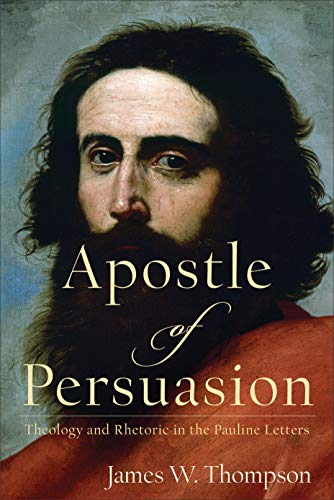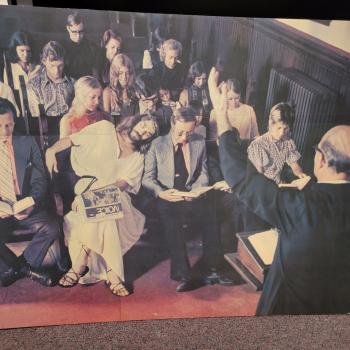Q. I wonder if you have read Bruce Winter’s monograph. Is Paul among the Sophists? What Winter demonstrates, at least to my satisfaction is that Paul is not claiming he is not a rhetorician, he is claiming he is not like the orators of the 2nd Sophistic, who focused on mere verbal eloquence and flattery, overcome by the exuberance for their own verbosity. Larry Welborn and others have rightly warned that the hints in 1 Corinthians and 2 Corinthians have to be read within the context of the popular sophistic rhetoric of the day, which Paul eschews. Welborn is especially helpful with the ‘his letters are heavy but his ethos is weak or miserable’. I think Winter and Welborn are right about this, and surely the evidence of Paul’s use of speech in character in Rom. 7 makes quite clear he knows advanced rhetorical devices, wherever he got the education. In a dialogue with Stan Porter, which continued into some articles back and forth in JETS, one of the things that bewildered me is that Porter came to the point of basically repudiating the detailed work of Margaret Mitchell, Duane Watson, Kennedy and others and without good reason. I wonder how you have evaluated all the recent back and forth about Paul and rhetoric in some of these discussions?
A. I suppose Paul had the kind of rhetorical education that anyone would have who had received a secondary or tertiary education. One learns much rhetoric simply by listening to good speakers. Undoubtedly, Paul learned rhetoric by listening. He sometimes uses rhetorical terms. I suspect that his comment that he is an idiotes in word may be an exaggeration (“I’m just a country boy” routine), and I assume that his oratory was not in the class of those in the second sophistic. Some of the church fathers acknowledged that Paul’s speech did not measure up to the highest standards. I am less convinced about Margaret Mitchell’s analysis and Hans Dieter Betz’s commentary than I was previously. I think both tried to “shoe horn” rhetorical arrangement into Paul’s letters. Betz even invented a category exhortatio to fit his scheme. I also see quite a bit of parallelomania in his use of classical parallels.
As I recall, Kennedy has said that one can do rhetorical analysis of any document, whether the writer was consciously using rhetorical tools or not. Schellenberg has an interesting chapter in which he finds many of the characteristics commended by the rhetoricians in the speeches of the Seneca chief Red Jacket (argument from ethos, exordium, self-praise) and Billy Sunday. That is, rhetoric comes largely from socialization. Nevertheless, as you can see in my book, I think attention to Greek rhetorical terms is a useful tool for analyzing an argument.

















